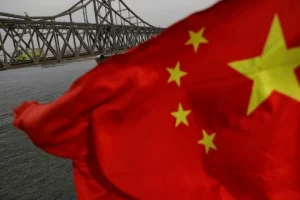Coal, considered to be the single largest source of global carbon emissions, is back in demand as the ongoing Russia-Ukraine war has crippled energy supplies leading to soaring prices. With an unprecedented rise in global economic uncertainties, several countries including Germany, the European Union’s (EU) largest economy have decided to resort to coal based power generation. Incidentally, India had come under the scanner last year after the conclusion of the COP 26 (Conference of Paris) )for altering the wording of the final deal to “phase down” instead of “phase out” coal.
In less than a year, the developed countries are now scrambling to resume coal based energy generation.
A report by the Observer Research Foundation noted that energy supply disruptions following the conflict between Ukraine and Russia in early 2022 took LNG prices even higher leaving coal as the only option for dispatchable and affordable power even in the tough markets of Western Europe and North America that have explicit policies to phase out coal.
"Coal mines and power plants closed 10 years ago have begun to be repaired in Germany. By winter, German power plants will burn at least 100,000 tons of coal per month" – Washington Post
France taking the same route even nationalising an energy entity
Europe moving back to coal pic.twitter.com/ebqIKjDsoL
— Sbahle_ger30 (@SbahleG56330853) August 2, 2022
Germany, one of the worst impacted by the energy crisis, has started to move back to coal by restarting the idle coal plants. The country had earlier shut down most of its coal based power plants as spearheaded the transition towards green energy and the climate change cause. Germany had announced phasing out all coal based electricity generation by 2038. But it is now reversing its stand as it faces one of the worst crises in decades.
Other European countries such as Austria, Poland, the Netherlands and Greece have also started restarting coal plants.
China has the largest number of operational coal power plants. India ranks second. Germany, the largest economy in the EU has 63, according to data collation portal Statista.
The International Energy Agency in a recent report said that while oil and natural gas are receiving much of the attention, coal markets are also experiencing significant turmoil, with important implications for many countries where coal remains a key fuel for electricity generation and a range of industrial processes.
Only last year, several countries committed to move away from coal based energy production.
At the COP26 held last year, 40 nations including Vietnam, Poland, South Korea, Egypt, Spain, Nepal, Singapore and Chile made new commitments to phase out coal power. In a new ‘Global Coal to Clean Power Transition Statement’, countries also committed to scaling up clean power and ensuring a just transition away from coal, a statement issued by United Nations Climate Change said.
Along with the governments, banks and financial institutions too announced that they would restrict funding for coal based projects.
“Coal is the single largest source of global carbon emissions, and this year’s historically high level of coal power generation is a worrying sign of how far off track the world is in its efforts to put emissions into decline towards net zero,” Fatih Birol IEA Executive Director had said last year.
Australia, Indonesia, US and South Africa besides Russia are the top coal exporters in the world. . Combined, those 5 countries shipped 84.5% of the total value of coal sold on international markets during 2021.
Climate activists and environmentalists have received a blow amid the rapidly changing energy contours that are now severely impacting the global economy.
The US Supreme Court ruling in July against the Environment Protection Agency (EPA), limiting its authority to regulate carbon dioxide emissions from power plants, dealt a blow too. Not just that. The European Parliament also approved inclusion of gas and nuclear as sustainable energy sources.
Also read: Climate activism takes a hit as European farmers march against organic farming
Is Germany's former chancellor Angela Merkel responsible for her country's energy crisis?




















